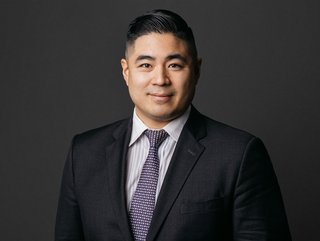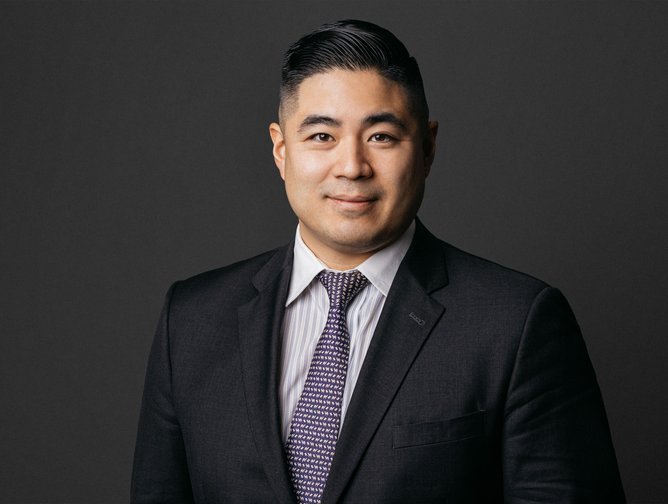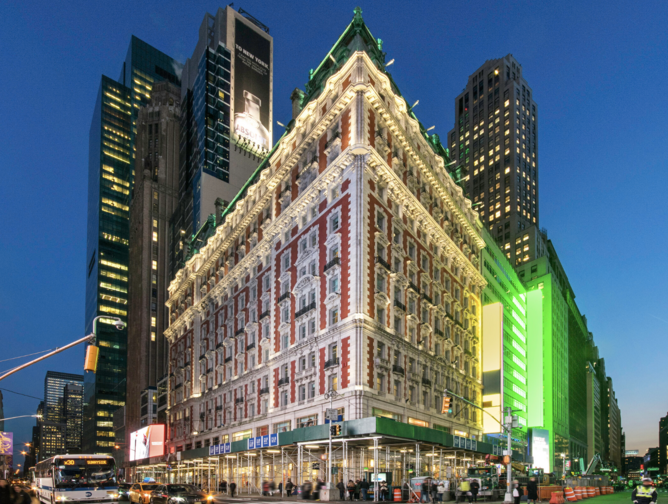NYC commercial real estate CEO Okada on Japanese influences

Commercial real estate visionary and CEO Chris Okada puts his success in the highly competitive New York market down to his Japanese roots and principles.
While his reputation as an innovative leader has been forged by hard work and determination, what really drives him is being more Lexus.
“In Japanese culture and business, there is an emphasis on values such as efficiency, dedication to work, and the renowned motto epitomised by Lexus ‘in pursuit of perfection’”, says Chris, CEO of commercial real estate brokerage Okada & Co.
Talking in real estate terms, Chris points to the fact that while NYC currently has a 49.5% office attendance rate due to remote work, Tokyo is completely back to its 95% attendance rate at the in-person workplace.
“I believe this dedication to work, making work part of my identity, and the pursuit of greatness and efficiency are qualities that I strive for, which are also expected of most of the Japanese workforce.”
As a first-generation Japanese-American, Chris’s determination, hard work and pursuit of excellence have led him to the top of his field, and under his leadership, Okada & Co. has become a dominant force in NYC commercial real estate.
He has faced and overcome many challenges on his path to success – thanks to the mentorship from his father, Naomi Okada, who was one of the most sought-after commercial real estate brokers in New York.

Building a real estate legacy in New York City
Arriving in NYC from Japan in 1967 with just US$200 in his pocket, as globalisation, sushi, and other Japanese goods were rising, Chris’s father carved out a niche in commercial real estate – working with companies like Toyota Motors, Mitsubishi, Kawasaki, Sony and many restaurant and hospitality companies to establish their first North American headquarters.
“This was the foundation of the value we brought to the world – highly technical commercial real estate transactions for those interested in NYC,” explains Chris, who joined his father in 2002, helping to establish HQ for Japanese retail giants including Uniqlo, MUJI, along with domestic firms seeking medium and small office spaces.
“My father taught me every aspect of the business. He taught me to push all parties when a deal looks like it is stalled, the technical aspects of a real estate transaction, and helped me tremendously with client management and relationships.”
Four years later and with two businesses already under his belt, Chris established Okada & Company, a commercial real estate company, which he has worked hard to build into a “dominant force in New York City commercial real estate”.
Today, the business, which has acquired five properties, and undertaken transactions of nearly US$1.5 billion in sales and leasing, represents 3 million square feet of commercial properties in Midtown Manhattan.
Among Chris’s many business highlights, the closing of his first sale with a gross commission of US$70,000, aged 23, is perhaps most pivotal.
“This was my ‘aha’ moment at 23 years old and established my drive for closing deals,” he tells Business Chief.
Dealing with the challenges
And while the company has since grown and Chris’s role as CEO has transformed, he still wears the hat of dealmaker (in addition to business development manager and team leader) and his dealmaking background informs his leadership style.
“I am a passionate coach, motivator, and wartime general… I greatly admire the calming, poised, perhaps even introverted, CEOs, but I am not that. I am more of a deal guy at heart, my greatest joy is closing deals.”
And he’s done plenty of those, counting his first acquisition, aided by his mentor Ira Fishman and the Gural family, and his securing US$1 billion in distressed commercial mortgages during the financial crisis, among his biggest achievements.
But Chris’s 21-year rise in NYC commercial real estate hasn’t been without challenges. The aftermath of 9/11, the financial crisis of 2008-2009, and the Covid-19 pandemic have all had a massive impact on the city of New York and on business.
Chris says he is currently witnessing market conditions not seen since the 2008 financial crisis. As is the case with the current economic climate – which Chris describes as the “most challenging office market in history”.
Office, retail and some hotel properties are experiencing low demand throughout the city and very few new deals are closing for these asset classes.
“And in an effort to fight inflation, the Federal Reserve has enacted one of the most aggressive monetary tightening policies ever, which can be felt nationwide by all – from leaders in the real estate industry to those trying to buy a house or car,” explains Chris.
“This too shall pass, but right now it is extremely difficult.”

Dealing with the challenges – financial crisis to Covid-19 pandemic
And while the company has since grown and Chris’s role as CEO has transformed, he still wears the hat of dealmaker (in addition to business development manager and team leader) and his dealmaking background informs his leadership style.
“I am a passionate coach, motivator, and wartime general… I greatly admire the calming, poised, perhaps even introverted, CEOs, but I am not that. I am more of a deal guy at heart, my greatest joy is closing deals.”
And he’s done plenty of those, counting his first acquisition, aided by his mentor Ira Fishman and the Gural family, and his securing US$1 billion in distressed commercial mortgages during the financial crisis, among his biggest achievements.
But Chris’s 21-year rise in NYC commercial real estate hasn’t been without challenges. The aftermath of 9/11, the financial crisis of 2008-2009, and the Covid-19 pandemic have all had a massive impact on the city of New York and on business.
Chris says he is currently witnessing market conditions not seen since the 2008 financial crisis. As is the case with the current economic climate – which Chris describes as the “most challenging office market in history”.
Office, retail and some hotel properties are experiencing low demand throughout the city and very few new deals are closing for these asset classes.
“And in an effort to fight inflation, the Federal Reserve has enacted one of the most aggressive monetary tightening policies ever, which can be felt nationwide by all – from leaders in the real estate industry to those trying to buy a house or car,” explains Chris.
“This too shall pass, but right now it is extremely difficult.”

Challenges in real estate – building resilience and opening doors
While difficult, it is events and conditions such as these that have helped Chris build resilience – a characteristic he believes is crucial in the “highly competitive and unpredictable” real estate industry.
“I’ve spent more than 20 years developing the ability to bounce back from setbacks, learn from failures, and adapt to changing market conditions, which has helped me to operate strategically in anticipation of the next obstacle.”
Part of being both resilient and strategic comes down to an individual’s mindset, acknowledges Chris. “For me, that means constantly motivating myself to do my absolute best that day, encouraging my team to do the same, and understanding that the ‘bad’ times won’t last forever.
“Having a strong work ethic, persistence and unwavering commitment are also essential.”
With challenges too come opportunities, and Chris is seeing plenty. Investing in the usually unobtainable NYC commercial real estate is now more feasible, he says.
“Purchasing properties in NYC between 2016 and 2020 was an extremely arduous and frustrating task due to exorbitant prices, but now I am seeing office space offered at a 30-60% discount from peak pricing.”
In fact, since the onset of the pandemic, Okada & Co.’s market share has doubled in NYC office space and the firm’s deal and revenue streams are up considerably compared to pre-pandemic levels.
“At 3 million sq-ft, we now have more leases and square footage under representation, and ultimately more opportunities to showcase our capabilities. Since the pandemic, we have leased over 400,000 square feet of office space and completed 227 transactions.”
A further silver lining was the increase in screen time during the pandemic, which increased Okada’s focus on social media marketing.
“This has assisted us greatly in the form of increasing our follower base, keeping our community abreast of Okada & Co.’s initiatives, and ultimately in landing additional clients.”
Okado & Co.’s growth strategy spotlights investment
Despite the challenges posed by the pandemic, high-interest rates, and bank failures, Chris believes that the next 12-24 months offer a once-in-a-generation chance for significant returns on real estate investments, possibly the most significant in a 25-year period.
Which is why, at the core of Okada’s growth strategy, is investment.
Okada & Co. has launched an equity vehicle focused on acquiring distressed, discounted, and high return investments in the highly sought-after NYC commercial real estate market. The firm aims to deliver superior returns to investors by investing in high-quality real estate assets.
“Our investment philosophy is built on identifying and acquiring undervalued assets in the New York City commercial real estate market and utilising our deep market knowledge and expertise to unlock their full potential.”
The company is also aggressively seeking to expand its property holdings and development.
For Chris, who believes the best opportunities and his greatest achievements are ahead, a strong work ethic, persistence, passion, dedication, hard work, and efficiency will continue to drive the business.
“I am living my dream,” he says.
- Five Minutes With: Sarah Robb O'Hagan, CEO at ExosLeadership & Strategy
- Asset Panda CEO Rex Kurzius on Innovating and Taking RisksLeadership & Strategy
- Liz Elting – Driving Equality & Building Billion-$ BusinessLeadership & Strategy
- 6 leadership principles for transitioning into an ESG worldSustainability






